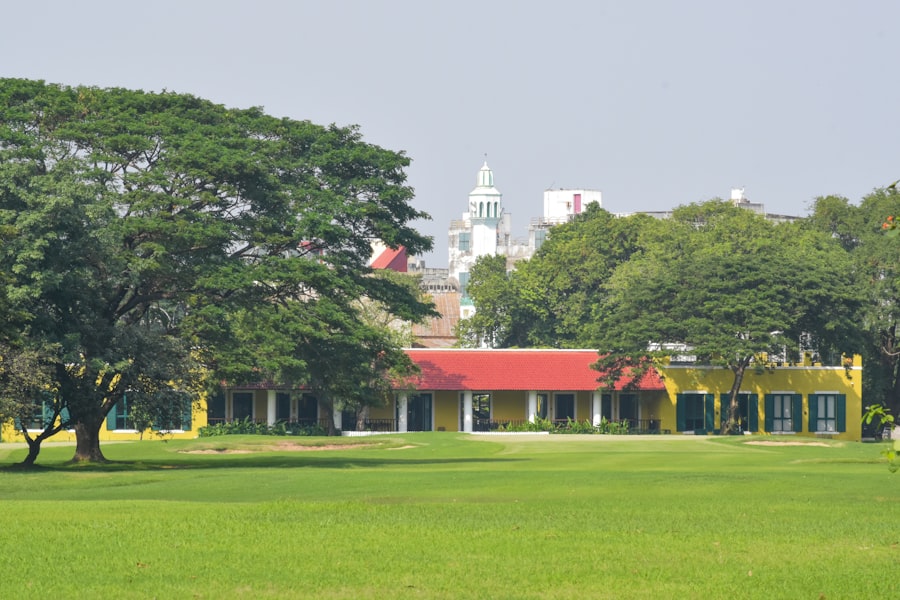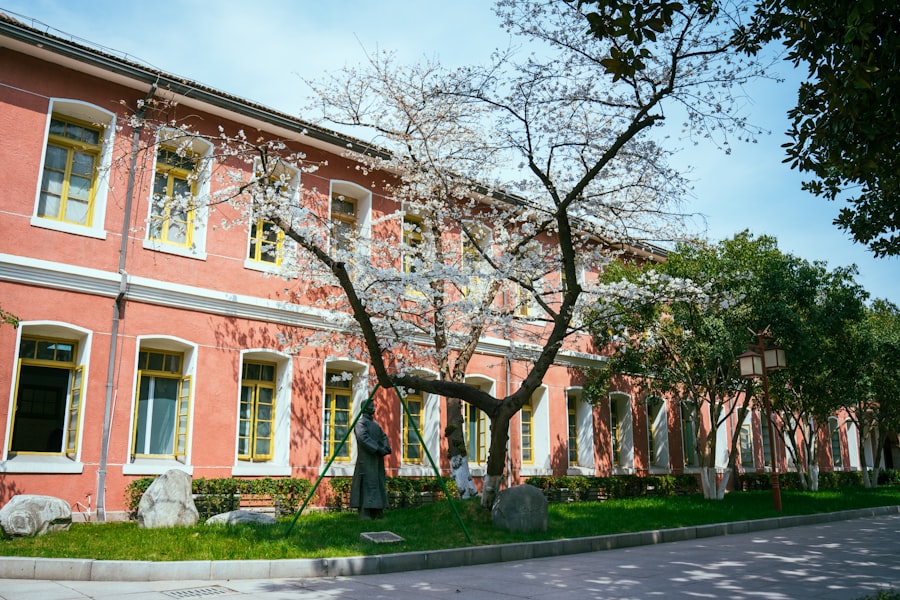When you think about tax-exempt university property, it’s essential to grasp the fundamental principles that govern this status. Tax exemption for universities typically arises from their classification as nonprofit educational institutions. This designation allows them to operate without the burden of property taxes, which can be a significant financial relief.
The rationale behind this exemption is rooted in the belief that educational institutions contribute to the public good by providing knowledge, fostering research, and preparing future generations for the workforce. As you delve deeper into this topic, you’ll find that the implications of tax-exempt status extend beyond mere financial considerations. Moreover, the properties that fall under this category are not limited to classrooms and lecture halls.
They often include libraries, research facilities, student housing, and recreational areas. Each of these spaces plays a vital role in the overall educational experience. By understanding the scope of tax-exempt university property, you can appreciate how these institutions serve as hubs of learning and community engagement.
The exemption allows universities to allocate more resources toward educational programs and student services, ultimately enhancing the quality of education provided.
Key Takeaways
- Tax exempt university property plays a crucial role in supporting education, research, and innovation.
- These properties contribute significantly to local economies and urban development.
- There are ongoing challenges and controversies regarding the fairness and impact of tax exemptions.
- Tax exempt university properties offer environmental benefits and promote sustainable practices.
- Ethical considerations are essential in balancing the benefits of tax exemptions with community needs.
The Economic Impact of Tax Exempt University Property
The economic ramifications of tax-exempt university property are multifaceted and significant. When you consider that universities often occupy large tracts of land and facilities, their presence can influence local economies in various ways. For instance, universities create jobs—not only for faculty and staff but also for local businesses that cater to students and university employees.
This economic activity can lead to a vibrant local economy, where restaurants, shops, and service providers thrive due to the influx of students and university-related events.
You might find that municipalities often rely on property taxes as a primary source of revenue to fund essential services such as schools, public safety, and infrastructure maintenance.
The challenge lies in balancing the benefits that universities bring to the local economy with the financial needs of the community. As you explore this dynamic, it becomes clear that while tax-exempt status can stimulate economic growth, it also raises questions about equitable contributions to local governance.
The Role of Tax Exempt University Property in Education

Tax-exempt university properties play a crucial role in shaping educational experiences. When you walk through a university campus, you’re likely to encounter state-of-the-art facilities designed to enhance learning and research. These properties are not just physical spaces; they embody the mission of higher education institutions to provide quality education and foster intellectual growth.
The investment in infrastructure reflects a commitment to creating an environment conducive to learning, collaboration, and innovation. Furthermore, these properties often serve as venues for community engagement and outreach programs. Universities frequently host workshops, lectures, and cultural events that are open to the public, thereby extending their educational mission beyond their student body.
This outreach fosters a sense of community and encourages lifelong learning among residents. As you consider the broader implications of tax-exempt university property, it becomes evident that these institutions are not isolated entities; they are integral parts of the educational landscape that enrich both students and the surrounding community.
Challenges and Controversies Surrounding Tax Exempt University Property
| Challenge/Controversy | Description | Impact | Example Metrics |
|---|---|---|---|
| Tax Revenue Loss | Local governments lose potential property tax revenue due to exemptions granted to university properties. | Reduced funding for public services such as schools, police, and infrastructure. | Estimated annual tax revenue loss: 10-30% of local property tax base |
| Property Use Disputes | Controversies arise over whether certain university properties are used for educational purposes or commercial activities. | Legal challenges and demands for tax payments on non-educational use properties. | Number of disputed properties per year: 5-15 |
| Community Impact | Universities expanding tax-exempt properties can affect neighborhood development and local housing markets. | Increased housing costs and displacement concerns in surrounding communities. | Percentage increase in local housing prices near university: 8-20% |
| Transparency and Accountability | Lack of clear reporting on how tax-exempt properties are used and their community benefits. | Public distrust and calls for stricter regulations or oversight. | Number of transparency initiatives or reports published annually: 1-3 |
| Legal and Policy Challenges | Ongoing debates over state and local laws defining tax exemption criteria for universities. | Frequent litigation and policy revisions affecting university tax status. | Number of legal cases filed annually: 2-7 |
Despite the benefits associated with tax-exempt university property, challenges and controversies abound. One significant issue is the perception that universities are becoming increasingly commercialized. As you observe universities expanding their real estate portfolios with new buildings and facilities, some community members may question whether these institutions still prioritize their educational missions over profit-driven ventures.
This commercialization can lead to concerns about gentrification and rising living costs in areas surrounding campuses. Additionally, there are ongoing debates about whether tax-exempt status should be reevaluated in light of universities’ growing endowments and financial resources. Critics argue that if universities can afford to build luxurious facilities or invest in high-profile athletic programs, they should contribute more to local tax revenues.
This perspective raises ethical questions about the responsibilities of educational institutions in supporting their communities. As you navigate these controversies, it’s essential to consider both sides of the argument and recognize the complexities involved in determining the appropriate balance between tax exemption and community support.
The Benefits of Tax Exempt University Property for Local Communities
While challenges exist, it’s important to highlight the numerous benefits that tax-exempt university properties bring to local communities. One of the most significant advantages is access to educational resources. Universities often provide libraries, research centers, and cultural institutions that are open to the public.
These resources can enhance community knowledge and foster a culture of learning among residents of all ages. Moreover, universities frequently engage in partnerships with local organizations to address pressing social issues. Whether it’s through service-learning programs or collaborative research projects aimed at solving community problems, tax-exempt university properties serve as platforms for positive change.
As you reflect on these contributions, it becomes clear that universities are not just centers of higher learning; they are active participants in their communities, working alongside residents to create a better quality of life.
The Importance of Tax Exempt University Property for Research and Innovation

Tax-exempt university properties are vital for fostering research and innovation. When you consider the cutting-edge laboratories, research centers, and collaborative spaces found on university campuses, it’s evident that these facilities are designed to push the boundaries of knowledge. Universities often attract top-tier researchers and scholars who contribute to advancements in various fields, from medicine to technology.
The collaborative nature of university research also plays a crucial role in driving innovation. By providing spaces where interdisciplinary teams can work together, tax-exempt university properties facilitate groundbreaking discoveries that have far-reaching implications for society. As you explore this aspect further, you’ll find that many technological advancements and medical breakthroughs have their roots in university research initiatives.
This connection underscores the importance of maintaining tax-exempt status for these institutions, as it allows them to continue their vital work in advancing human knowledge.
The Environmental Impact of Tax Exempt University Property
The environmental impact of tax-exempt university properties is another critical consideration. Many universities are increasingly aware of their ecological footprint and are taking steps to promote sustainability on their campuses. You may notice initiatives such as green building practices, renewable energy installations, and sustainable landscaping efforts aimed at reducing environmental impact.
Additionally, universities often serve as laboratories for environmental research and education. By conducting studies on climate change, conservation efforts, and sustainable practices, they contribute valuable insights into pressing environmental issues. As you reflect on these efforts, it becomes clear that tax-exempt university properties can play a pivotal role in promoting environmental stewardship within both academic settings and local communities.
The Role of Tax Exempt University Property in Urban Development
Tax-exempt university properties can significantly influence urban development patterns. When you look at cities with prominent universities, you’ll often find that these institutions act as catalysts for growth and revitalization. The presence of a university can attract businesses, restaurants, and housing developments that cater to students and faculty members.
However, this urban development can also lead to challenges such as displacement of long-term residents or changes in neighborhood character. As you consider these dynamics, it’s essential to recognize that while universities can drive economic growth, they must also be mindful of their impact on existing communities. Engaging with local stakeholders and prioritizing inclusive development practices can help mitigate potential negative consequences while maximizing benefits for all parties involved.
The Future of Tax Exempt University Property
Looking ahead, the future of tax-exempt university property is likely to be shaped by evolving societal needs and expectations. As you observe trends in higher education—such as increasing online learning options or shifts toward more vocational training—universities may need to adapt their physical spaces accordingly. This could involve reimagining traditional classroom settings or creating flexible spaces that accommodate diverse learning styles.
Moreover, as communities grapple with issues like affordable housing or public health crises, universities may find themselves at the forefront of addressing these challenges through innovative partnerships and initiatives. The future will require universities to remain responsive to changing circumstances while continuing to fulfill their educational missions. As you contemplate these possibilities, it’s clear that tax-exempt university properties will play a crucial role in shaping the landscape of higher education for years to come.
Ethical Considerations of Tax Exempt University Property
The ethical considerations surrounding tax-exempt university property are complex and multifaceted. On one hand, there is a strong argument for maintaining tax exemption based on the societal benefits provided by educational institutions. However, as you delve deeper into this issue, you may encounter questions about equity and fairness—especially when considering how tax exemptions impact local governments’ ability to fund essential services.
Furthermore, there is an ethical imperative for universities to engage with their communities meaningfully. This includes being transparent about their financial resources and actively participating in discussions about how they can contribute more effectively to local needs. As you reflect on these ethical dimensions, it becomes evident that universities must navigate a delicate balance between preserving their tax-exempt status while also being responsible stewards within their communities.
The Value of Tax Exempt University Property
In conclusion, tax-exempt university property represents a complex interplay between education, community engagement, economic impact, and ethical considerations. As you’ve explored throughout this article, these properties serve as vital resources for both students and local communities alike. They foster learning environments that promote intellectual growth while also contributing significantly to local economies through job creation and partnerships.
However, challenges remain regarding equity and community relations that must be addressed thoughtfully by universities moving forward. By recognizing their responsibilities as community members and engaging proactively with local stakeholders, universities can continue to uphold their missions while ensuring that they contribute positively to the communities they inhabit. Ultimately, the value of tax-exempt university property lies not only in its financial implications but also in its potential to enrich lives through education, research, innovation, and community collaboration.
Tax-exempt status for university properties can significantly impact local economies and funding for public services. For a deeper understanding of how such exemptions affect wealth distribution and community resources, you can read more in this related article on wealth growth strategies at How Wealth Grows.
WATCH THIS! EXPOSED: The Tax-Free Real Estate Empire Funded By Your Student Loans
FAQs
What does it mean for university property to be tax exempt?
Tax exempt university property refers to real estate and other assets owned by a university that are exempt from paying property taxes, typically because the institution is recognized as a nonprofit or educational entity.
Which types of university properties are usually tax exempt?
Properties used directly for educational purposes, such as classrooms, administrative buildings, libraries, and dormitories, are commonly tax exempt. However, properties used for commercial activities may not qualify.
How is tax exemption status for university property determined?
Tax exemption status is generally determined by state and local laws, which require the university to apply for exemption and demonstrate that the property is used primarily for educational or charitable purposes.
Are all university properties automatically tax exempt?
No, not all university properties are automatically tax exempt. The exemption typically applies only to properties used for educational or nonprofit activities. Properties leased to commercial entities or used for profit-generating activities may be subject to taxation.
Can tax exempt university property be subject to other types of taxes?
Yes, while property tax may be exempt, universities may still be responsible for other taxes such as sales tax, income tax on unrelated business activities, or special assessments.
Do tax exempt university properties affect local government revenue?
Yes, tax exempt properties reduce the property tax base, which can impact local government revenue and funding for public services. Some jurisdictions negotiate payments in lieu of taxes (PILOT) agreements with universities to offset this impact.
How can a university maintain its property tax exemption?
Universities must ensure that their properties are used in accordance with the exemption criteria, file necessary documentation with tax authorities, and comply with any reporting requirements to maintain their tax exempt status.
What happens if a university property is used for non-educational purposes?
If a university property is used for non-educational or commercial purposes, it may lose its tax exempt status for that property and become subject to property taxes.
Are tax exempt university properties subject to assessment or valuation?
Yes, tax exempt properties are often assessed for valuation purposes, but the assessed value is not used to calculate property taxes due to the exemption.
Can private universities qualify for property tax exemption?
Yes, private universities that qualify as nonprofit educational institutions under state law can apply for property tax exemption on eligible properties.
